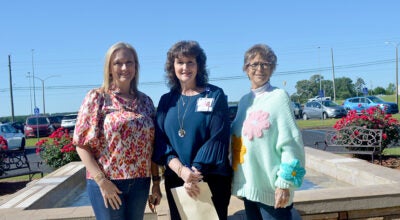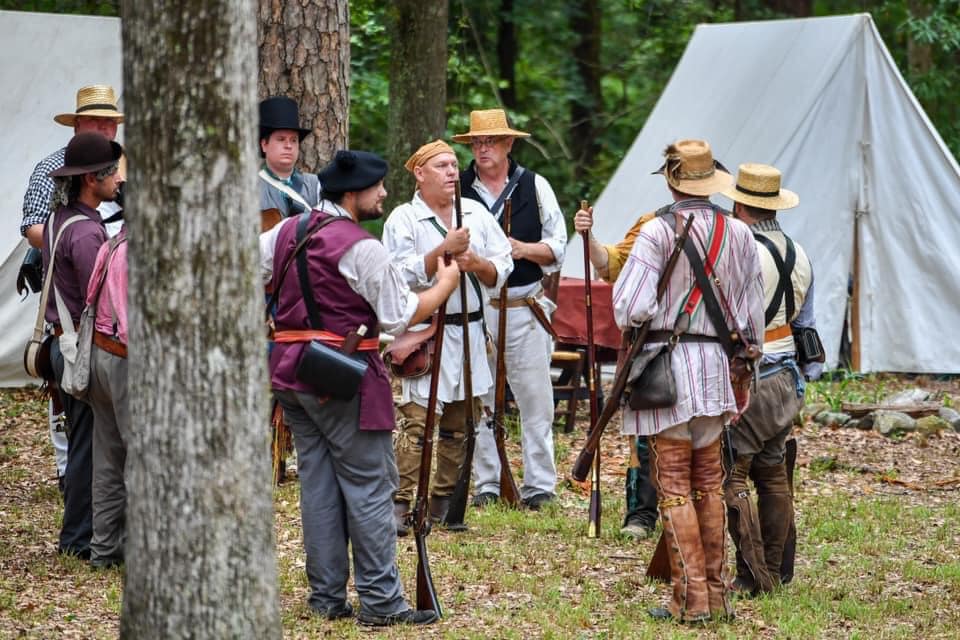Support group discusses living with Alzheimer’s
Published 7:11 pm Thursday, June 6, 2019
At the beginning of the Alzheimer’s Support Group Meeting Thursday at Troy Regional Medical Center, things were rather quiet, perhaps reflective. But once the conversation started, all participants were engaged.
Group leader Ovida Walden, Troy Health and Rehabilitation Center, explained that Alzheimer’s is a disease for which there is no cure. It does not pick and choose its patients.
“I lost a cousin who was diagnosed at 42,” Walden said. “Alzheimer’s has not definitely been linked to heredity. For whatever reason or reasons, the braid dies slowly. The short-term memory goes first. A patient can’t remember what happened five minutes ago but can remember what happened 30 years ago.”
Walden said an Alzheimer’s patient might not remember a child as his or her grandchild but will know that a child brings them happiness.
“There is still so much we don’t know about Alzheimer’s,” she said. “There are no drugs or treatments to cure Alzheimer’s disease but there are treatments that can slow down its progression.”
That being so, Walden said it’s a matter of learning to live with the disease, both those who have the disease and those who care for them.
“That’s the purpose of the Alzheimer’s Support Group,” Walden said. “We meet at noon on the first Thursday of every month in the TRMC boardroom. For those who are caring for an Alzheimer’s patient, it’s an opportunity to share their experiences, to share what is working or not working for them and to learn from what others are doing.”
Walden said Alzheimer’s patients are welcome, too. The informal meetings are opportunities for sharing and also to provide support.
“First, we go to the TRMC cafeteria and get lunch and enjoy visiting while we eat.”
Walden said that time of fellowship is relaxing and casually moves the transition from general conversation to that specific to Alzheimer’s.
At Thursday’ s meeting, a caregiver opened the conversation with a concern about a patient’s fear and rambling.
A suggestion was made to remove all mirrors because a patient’s own reflection might be viewed as someone to fear. Giving a door a false appearance could prevent a patient from finding an exit and wandering.
A patient who is fond of children might find comfort in having a doll.
“What works for one Alzheimer’s patient might not work for another,” Walden said. “But, there’s a chance that it might.”
One participant who has Parkinson’s disease talked about the commonality of the two diseases. He concluded with a smile that “It’s not much fun to grow old. It’s more fun getting to be an adult.”
There were nods all around.
One participant told of the time her mom forgot to swallow and how she handled that tense situation and that she is comfortable with her mom thinking she is her sister.
“At least, my mom recognizes that the one taking care of her is someone she knows,” she said. “I’m good with that.”
The conversation turned to whether an Alzheimer’s patient should be told when a loved one dies and about the blessings of a patient who is “pleasantly confused.”
The participants agreed that Alzheimer’s patients “can’t live in our world so we must live in theirs.”
That requires patience, understanding and unconditional love, they said.
The Alzheimer’s Support Group always welcomes new participants. The meetings are at noon on the first Thursday of the month in the boardroom at TRMC. Thursday holidays are the exception.




